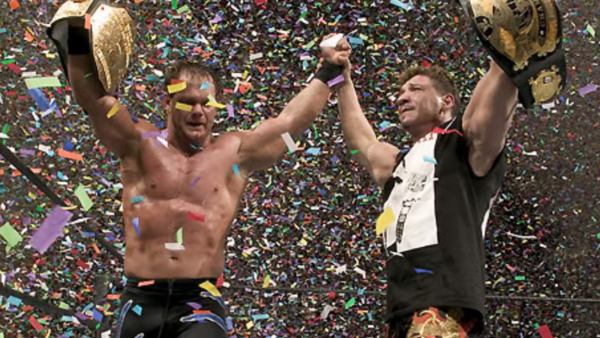The Murky Realities Of The WWE Wellness Policy

Eddie Guerrero wasn't one the performers that lifted WWE out of the doldrums in the Attitude Era nor the man that represented the bold leap into the next decade following the exits of Stone Cold Steve Austin and The Rock in one calendar year, but he was one of the great victors of the Monday Night Wars. An under-appreciated all-rounder in WCW, his 2000 jump to a thriving World Wrestling Entertainment alongside technical savant Chris Benoit and workhorses Dean Malenko and Perry Saturn represented a vital paradigm shift for the organisation. Alongside a host of other major signings, the workrate quality in the organisation shot up in sync with superlative creative. WWE's ability to fire on cylinders flattened all in its path, and with it established a host of new household names that could theoretically be slotted in to top spots when the aforementioned megastars eventually moved aside.
Guerrero's time came in 2004 having survived a car accident, a severance with his wife and children and a 2001 sacking thanks to his near-fatal issues with drugs and alcohol. His WWE Title victory over Brock Lesnar was a victory for 'Latino Heat' not just over a 'Beast' but over his many, many demons. Suggesting his was a win for 'the little guy' is hilarious in hindsight but was a damning indictment of the everyday drug use at the time. Guerrero had biceps as wide as he was tall - muscles sculpted perhaps because of industry perceptions of his physical stature.
A month later, he took a bow on WWE's Grandest Stage. From the dead centre of Madison Square Garden, he held his friend Chris Benoit's arm aloft as the two celebrated their unlikely title wins for WrestleMania 20's closing beauty shot. Jim Ross' hyperbolic bellows weren't without merit - the pair had travelled hard, hard roads to make it to that point and were irrefutably masters of their craft. That they were so chemically enhanced didn't seem to matter or even register at the time. McMahon's biggest success in relation to substance abuse was to remove the significance of the narrative, rather than remove any of the problem's multiple root causes.
McMahon didn't run the Garden for the 30th edition of his 'Show Of Shows', and to this day can't replay footage of what happened at the 20th. The arena costs are apparently too high, and the sharp left turns both Guerrero and Benoit took in the aftermath were lower than anybody could have imagined.
Death and taxes drove the changes. Those, and as admitted by McMahon when he was next needled by the government - "two words; public relations".
[CONT'D]